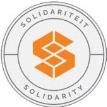UN Committee rebukes government over apartheid classifications – government has to provide an explanation
14 September 2016
A report, issued by the United Nations’ Committee on the Elimination of Racial Discrimination (CERD), takes government to task over its use of old apartheid classifications in its presentation of statistics. Moreover, the South African government has to give feedback to the committee about the impact of affirmative action in South Africa, and must report on whether it is complying with the requirements set out in the Convention on the Elimination of All Forms of Racial Discrimination.
This criticism is contained in a report issued by CERD in response to government’s report which had served before the committee in August.
Solidarity and AfriForum had submitted a shadow report to the committee, arguing that government’s policy of racial quotas is not in line with the Convention.
The committee emphasised that a more holistic approach has to be followed when it comes to the use of statistics. According to the UN report, all relevant statistics need to be taken into consideration and not just racial information.
The report also recommends that the South African government report in full on the impact affirmative action has on employment, training and on political and public matters.
“Should government not change its racial approach, then a recommendation could be passed at CERD’s 2020 session in terms of which government would be expected to put an end to racially based affirmative action in South Africa. The process that has now been embarked upon is a major breakthrough. For the first time affirmative action in South Africa is now formally on the UN’s agenda, and the country is required to give a formal explanation of its policy,” Solidarity Chief Executive Dirk Hermann said.
In a press statement issued by the UN committee in response to South Africa’s report, the following is stated: “Experts took note of the rather rigid approach to the application of quotas, which seemed to favour a quantitative approach over a qualitative one, and urged South Africa to ensure that its affirmative action was aligned to the Convention and the Committee’s General Recommendation No 32 of 2009.”
According to Hermann, the gist of Solidarity and AfriForum’s submission is that South Africa’s affirmative action system is nothing other than a racial census, which is not compliant with the requirements of affirmative action.
Should government implement any process of racial classification it should, according to the committee, indicate why such is justified and why a process of self-identification is not used.
The committee expects government to give feedback in terms of recommendation no 32 of 2009 of the Convention, which prescribes what special measures encompass and how such measures should be implemented.
In effect, the recommendation means government will have to test affirmative action (including the Employment Equity Act and the Black Economic Empowerment Act) in terms of the UN Convention, and specifically in terms of recommendation no 32 of 2009.
The key principles of the recommendation by which government will be tested include whether preferential treatment is justified, serves a legitimate purpose, and whether it is proportionate to the achievement of the goal. Special measures must also be implemented on the basis of need, and must be fair and temporary in nature. It may not give rise to separate rights for separate race groups, and it may not lead to apartheid practices.
In the light of the above, the UN Committee’s warning that government’s racial classification is based on former apartheid categories should be regarded as a serious reprimand. The South African government will have a hard time to convince the committee that its system of racial quotas complies with the principles embodied in recommendation no 32 of 2009,” Hermann said.
As far as the way forward is concerned, Solidarity and AfriForum intend to:
1. Participate in the consultation process to be followed when the South African government’s next report is drafted;
2. Proceed with local litigation and international complaints regarding quotas in sport;
3. Host an international conference on international affirmative action practices involving speakers from various countries to deal with the topic;
4. Appeal to the principles embodied in the Convention in local litigation action;
5. Act as a watchdog over government’s implementation of affirmative action and to report our findings to the next session of the UN Committee.
Issued by Dirk Hermann, Chief Executive: Solidarity, 14 September 2016

